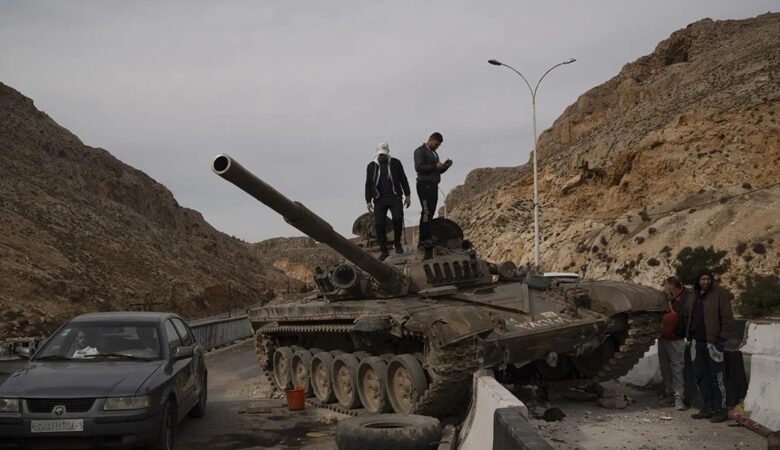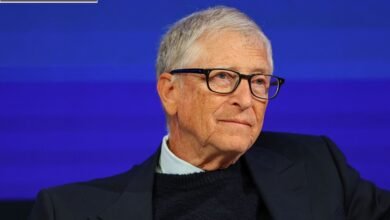UN ambassador visits Syria’s Sharaa and advocates inclusive transition.

News Mania Desk / Piyal Chatterjee / 16th December 2024
During a meeting with Syria’s new administration commander, Ahmed al-Sharaa, the United Nations’ Syria envoy encouraged an inclusive Syrian transition based on a nine-year-old Security Council resolution, according to the ambassador’s office on Monday. In a second statement describing Sunday’s meeting with Geir Pedersen of the United Nations, Syria’s governing General Command stated that they addressed the need to review Security Council Resolution 2254, stating that it needed to be modified to “suit the new reality”.The meeting was one of Sharaa’s most significant foreign interactions to date, since he led the Islamist Hayat Tahrir al-Sham (HTS), which has emerged as the dominant authority in Damascus after ousting Bashar al-Assad little over a week earlier.
Sharaa, whose organization was an al-Qaeda offshoot until it cut relations with the terrorist network in 2016, was seen wearing a jacket and an open shirt as he met with Pedersen, the United Nations Syria envoy since 2018.Western and regional nations have labeled HTS as a terrorist group, notably Turkey, which has long been a major international supporter of the Syrian opposition. The new administration in Damascus has provided few specifics about its plans for Syria’s next steps, following more than five decades of iron-fisted control by the Assad family and nearly 14 years of catastrophic civil conflict.
Newly appointed Prime Minister Mohammed al-Bashir, who formerly ran an HTS-affiliated administration in Idlib province, has stated that he will continue in power until March.
Pedersen informed Sharaa on the conclusion of an international summit held in Jordan on Saturday, according to a statement from his office.
“The Special Envoy briefed on the outcome of the Aqaba International Meeting … stressing the need for a credible and inclusive Syrian-owned and led political transition based on the principles of United Nations Security Council resolution 2254 (2015),” according to a release from Pedersen’s office.”The Special Envoy stressed the intention of the United Nations to render all assistance to the Syrian people.”
Since Assad was deposed and fled to Russia, United Nations Resolution 2254 has emerged as a focal focus of diplomatic efforts in Syria. It was approved in 2015, during the height of the crisis, which began with pro-democracy rallies against Assad’s leadership in 2011. The resolution was accepted after Russia intervened militarily to support Assad’s authority. The resolution expresses support for a Syrian-led political process assisted by the United Nations that, within six months, produces “credible, inclusive, and non-sectarian governance and sets a schedule and process for drafting a new constitution”. It also expresses support for free and fair elections under the new constitution, which should be held within 18 months.
Sharaa “stressed the importance of rapid and effective cooperation to address the issues of the Syrians and the need to focus on the unity of Syria’s territories, reconstruction and achieving economic development”, the Syrian statement said. Sharaa spoke of the need for “caution and precision in the stages of transition and rehabilitating institutions to build a strong and effective system”. The importance of providing a safe environment for refugee return and political and economic support for this was emphasised, the statement added. “Leader Sharaa pointed out the need to implement these steps with great care and high precision without haste and under the supervision of specialized teams, so that they are achieved in the best possible way,” it said.
Kaja Kallas, the European Union’s foreign policy leader, said on Monday that she had authorized Syria’s top diplomat to travel to Damascus and contact the new administration.
The Kremlin said on Monday that no final decisions had been made on the fate of Russia’s military outposts in Syria, and that it was in communication with the country’s leaders.
Four Syrian sources told over the weekend that Russia was withdrawing its soldiers from the front lines in northern Syria and from stations in the Alawite Mountains, but would not abandon its two key bases following Assad’s demise.






